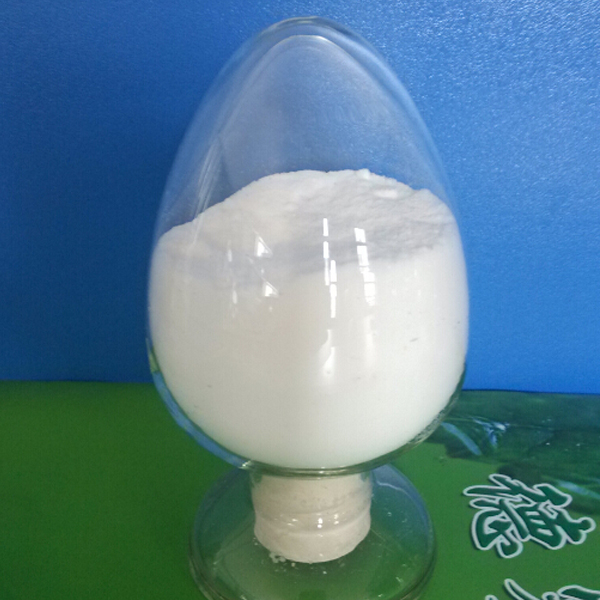IDS (Iminodisuccinic Acid Sodium Salt) is a 100% water-soluble, fully biodegradable chelating agent that represents a new generation of environmentally friendly solutions. It is designed to replace traditional chelating agents like EDTA, offering superior performance while minimizing environmental impact. With its unique properties, IDS is revolutionizing industries by providing a sustainable alternative for metal ion management.
Why Replace Traditional Chelating Agents?
Traditional chelating agents like EDTA, DTPA, and NTA are widely used but have significant drawbacks. They are poorly biodegradable, leading to environmental accumulation in rivers, lakes, and soil. This persistence poses risks to ecosystems and human health. IDS, on the other hand, offers a sustainable alternative with comparable or even superior chelating performance.
Advantages of IDS Over EDTA
Biodegradability: IDS decomposes naturally, unlike EDTA, which persists in the environment.
Non-Toxic: IDS is safe for ecosystems and human health.
Enhanced Performance: IDS has a stronger chelating ability for heavy metals and transition metals, making it more effective in various applications.
-

เกลือโซเดียมกรดอิมิโนไดซัคซินิก (IDS-Na)
หมายเลข CAS: 144538-83-0 ชื่อเพิ่มเติม: Tetrasodium Iminodisuccinate สูตรโมเลกุล: C8H7NO8Na4 ฟังก์ชั่น: Chelator, Chelating agent, Complexing agent; น้ำอ่อนลง; สารฟอกขาว -

tetrasodium iminodisuccinate เป็นสารคีแลนท์สีเขียวและย่อยสลายได้ทางชีวภาพ
หมายเลข CAS: 144538-
What is Iminodisuccinic Acid (IDS)?
Iminodisuccinic acid (IDS) is a biodegradable, eco-friendly chelating agent that has gained popularity as a sustainable alternative to traditional chelators like EDTA and phosphonates. It is a tetracarboxylic acid that effectively binds metal ions, making it useful in a wide range of industrial and environmental applications.
Key Properties of Iminodisuccinic Acid:
Biodegradability: IDS is readily biodegradable, breaking down naturally in the environment without leaving harmful residues.
Chelating Ability: It forms stable complexes with metal ions such as calcium, magnesium, iron, and copper, making it effective in preventing scale formation and controlling metal-related issues.
Eco-Friendly: IDS is non-toxic and environmentally safe, aligning with global sustainability goals.
Water Solubility: It is highly soluble in water, making it easy to use in various liquid formulations.
Is Tetrasodium Iminodisuccinate Safe?
In today's world, where environmental and health concerns are at the forefront, understanding the safety of chemicals like tetrasodium iminodisuccinate is crucial. If you're looking for information on its safety, you've come to the right place.
Low Toxicity
Extensive studies show it has low oral and dermal toxicity. Minor skin contact or accidental small - amount ingestion in normal situations rarely cause severe poisoning. It's far less risky than many other industrial chemicals, making it suitable for applications with possible human contact.
Biodegradable
Its excellent biodegradability is a major plus. Microorganisms break it down into harmless CO₂, water, and nitrogen - containing compounds. Unlike non - biodegradable chemicals, it doesn't pollute the environment long - term. Whether in wastewater or soil, it decomposes, reducing its ecological impact, and is perfect for eco - conscious industries.
Approved for Many Uses
Countries globally have approved it for various applications. In detergents, it replaces phosphorus - containing chelators, improving cleaning by binding hard - water metal ions. It's also used in textile, paper, and metalworking. This approval indicates thorough safety evaluations and safety within recommended limits.
Handling Precautions
Though generally safe, handle it with care. Follow manufacturer guidelines. In industrial setups, workers should use gloves and safety glasses. Store it in a cool, dry place away from incompatible substances.
Application of IDS (Iminodisuccinic Acid) in Agriculture
IDS as chelating agent in fertilizers and pesticides
In the realm of agriculture, IDS (Iminodisuccinic Acid) serves as a highly effective chelating agent within fertilizers and pesticides. When compared to chelating agents like citric acid, amino acids, and humic acid used in complex fertilizers, IDS - chelated fertilizers exhibit significantly higher stability and bioavailability. This makes IDS an unparalleled solution for supplementing essential trace elements during crop growth. Its usage is completely safe, capable of enhancing the physiological functions of crops.
By doing so, it directly contributes to increased crop yields. Moreover, it plays a crucial role in improving the overall quality of agricultural produce, firmly establishing itself as the top choice for farmers aiming to boost both the quantity and quality of their harvests.
IDS: A new type of amino acid-based chelating agent.
IDS represents a new generation of amino - acid - based chelating agents. It stands as an eco - friendly and high - performance alternative to traditional amino polycarboxylic acid chelating agents such as EDTA, DTPA, and NTA. IDS is characterized by its excellent water solubility, which allows for easy integration into various agricultural formulations. Crops can readily absorb it, ensuring efficient utilization of nutrients.
Notably, IDS does not cause any antagonistic effects, which means it does not interfere with the uptake of other essential elements by plants. This property further underlines its value in promoting healthy and balanced crop growth.

